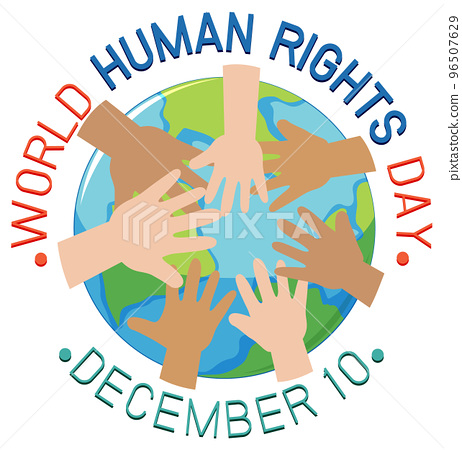– Mohd Naushad Khan
On 10th December we will observe Human Rights Day but one may wonder what the significance of Human Rights Day is when the space for dissent is shrinking by the day. It has become very difficult and almost impossible for civil society groups, peace groups, and social and human rights defenders to raise their voices against the government or its policies.
10 December 2023 marks the 75th anniversary of one of the world’s most groundbreaking global pledges known as the Universal Declaration of Human Rights (UDHR). This landmark document enshrines the inalienable rights that everyone is entitled to as a human being – regardless of race, color, religion, sex, language, political or other opinions, national or social origin, property, birth or another status.
On 10th December, will the nations that took the pledge in UDHR will affirm to raise their voice against the pain and suffering of the Palestinian people, children and women? Are they not humans? What will be the meaning of Human Rights Day for them?
In India too, the democratic space for the citizens is shrinking each passing day. People are not even allowed to hold protests peacefully at Jantar Mantar these days. Recently pro-Palestinian groups were not allowed to express their solidarity with the Palestinian people and on 6 December. Also, a protest called by dozens of socio-religious and concerned citizens was not allowed against Babri Masjid demolition.
According to Ravi Nair, Executive Director of South Asia Human Rights Documentation Centre, “The quest for democratic space and dissent is a continuous process, never-ending. It follows the laws of Physics, if you do not fill the space, someone else will, and here it is the Indian state.”
Nair added, “In the battle for democratic space there are no vacuums. The state in its very being wishes to control and subjugate. The human yearning is for freedom. Yet, oftentimes, it is forgotten that nowhere in the world are human freedoms and democratic space obtained even momentarily without struggle.”
“That is what Mahatma Gandhi‘s message of Satyagraha was about. This is what Henry David Thoreau wrote about the right to peaceful Civil Disobedience. In India, post-Independence, Dr Rammanohar Lohia was the only articulate voice on popular peaceful action to win democratic space. Today’s political parties, community and mass organisations and others are reluctant to go to jail in peaceful civil disobedience for rights. We are content with the Jantar Mantar ghetto that the courts have so kindly given us for protest,” said Nair.
Venkatesh Nayak, Director in-charge of Commonwealth Human Rights Initiative (CHRI), said, “Human Rights Day marks the completion of 75 years of the existence of the Universal Declaration of Human Rights (UDHR) – the basic charter which lists out minimum guarantees that every State must ensure for every person to be able to lead a life of dignity, respect and non-discrimination. India played a central role in the crafting of this document. Every one of the rights mentioned in the UDHR is either guaranteed under the fundamental rights chapter of our Constitution or is referred to as a directive principle that must inform the making of State policies and laws.”
“It is only when we reaffirm our commitment to the promotion and protection of these basic human rights and act in a resolute manner to ensure their fulfillment will the premabular vision of our Constitution be achieved. The core values of justice, equality, liberty and fraternity mentioned in the Preamble of our Constitution must inform every action of the Government and its agencies if democracy is to be upheld during these challenging times,” added Nayak.
Professor Mohd Mahtab Alam Rizvi, Director of Nelson Mandela Centre for Peace and Conflict Resolution, Faculty of Social Sciences, Jamia Millia Islamia, said, “In a democratic country after every five years we used to change the government. But at the same time, the Constitution has also given the rights to protect our life, to protect our liberty, to protect our family. Within the Constitution of India, we can also protest against the government if any policy is not implemented which was in favour of the citizens of the country.”
“These rights are given in our Constitution but at the same time, there should be no protest against the nation. Government may come and go but the nation will remain the same. If you do not agree to any opinion or any policy adopted by the government, one is free to protest, one can write to the government or the ministry to protect your rights. One can dissent against the government but not against the nation,” said Dr. Rizvi.




